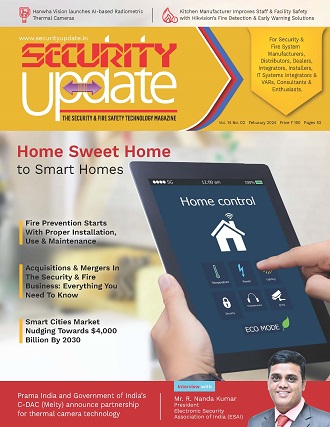
As the world’s population grows, it also becomes increasingly urban. More than half of the world’s population lives in cities, and this number is expected to jump to 67% by 2050, according to the United Nations. With our cities becoming more crowded, the need to plan our spaces more effectively has become an imperative. Allegion suggests that recent advances in technology and security can help as we begin to address this issue.
To find space, we can first examine how we’re using buildings that already exist. For example, the U.S. government spent $1.7 billion to maintain 770,000 empty buildings in 2016. The Government Accountability Office has reported that the government continues to hold more property than it needs.
Even in buildings that are occupied, much of the space is underutilised and is ripe to be repurposed. With more workplaces offering flexible and remote working options to their employees, office buildings can feel like a ghost town — and not just on Friday afternoons. Studies have found that office desks are used about 59% of the time. When “hot desks” (desks reserved for short-term use by visiting staff) are added to an office, their usage is reduced to 16%. Meeting spaces are left mostly vacant, seeing use only 39% of the time, with just 19% of meeting room capacity being used.
When we think about how to repurpose these spaces to serve more diverse needs to accommodate for more people, it’s important not to lose sight of security. One of the biggest challenges in this area is reducing tailgating — the practice of employees holding open the door for other employees, un-badged visitors or third-party vendors. While this is a habit borne from employees’ desire to be friendly and polite, these good intentions can inadvertently lessen or compromise security. In fact, 70% of enterprise security professionals in a Boon Edam survey believed their businesses were vulnerable to a security breach due to tailgating – and only 5% respondents believed that a security officer alone would be effective at preventing tailgating.
As we re-examine space usage, according to Allegion, it is imperative that we also re-examine the broad range of access control technologies needed to make sure that the right people are in the right place at the right time. Advances in sensors, access control, biometrics, artificial intelligence and scheduling technologies are some of the emerging ways Allegion Ventures is investigating to help businesses more effectively monitor and control their spaces.












